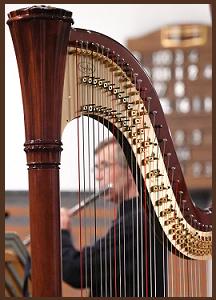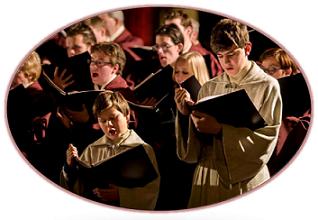Music and Hymns in History!
Music and Hymns in History!
And do not be drunk with wine, in which is dissipation; but be filled with the Spirit, speaking to one another in psalms and hymns and spiritual songs, singing and making melody in your heart to the Lord, giving thanks always for all things to God the Father in the name of our Lord Jesus Christ, submitting to one another in the fear of God.
Ephesians 5:18-21
Throughout the Christian world the use of instrumental music and hymn-singing has divided the church. The younger generation may feel that the time has come for change, but many do not know the history of the subject. The issue has always plagued the church. There has always been a wide range of views regarding singing in church. An article in ‘Evangelicals Now’ in January this year makes interesting reading. Our Psalm singing tradition has escaped many other problems!

The article shows how the whole issue is complex and many Biblical verses have influenced people’s views. For example, in London at the end of the 17th century, a Baptist congregation split because some felt that women should not be allowed to sing as they are to “keep silent in the churches” (1 Cor 14:34).
Others believed it was wrong to make unregenerate people sing the praises of God. They did not want any singing at all in church, psalms or hymns, if unbelievers were present. When Benjamin Keach introduced singing after the service in 1691 there was a furious uproar. One member wrote 11 books on the issue and distributed pamphlets saying that those who wanted congregational singing were ‘book-burning papists’!
Some others believed that singing was an extra-ordinary gift like tongue speaking and not for today. Using written hymns was like a liturgy and was contrary to Reformation principles. Using metre and rhyme were ‘carnal formalities’.
Isaac Watts opposed Psalm singing only on the grounds that it forced us to make false confessions. That is, sins we never committed, sorrows we never felt, cursing of enemies we never had and praising and thanking God for victories we never won.
Regarding tunes the issue gets worse. In the 1770’s, at Hitchin Baptist Church, Watt’s hymns were to be sung on one condition – every hymn in the book, no matter what metre, was to have the same tune! Others in the congregation advocated that each person could sing his/her own tune at whatever speed they wanted!
Now to music. No music (or hymns) were used in the church until the 12th century! So it was natural that when it started there would be problems. Many genuinely believed that when music came into the church it was ‘unlawful to use instruments in church’. Others said it was the slippery slope to Rome. Even when Sankey in 1872 published his ‘Sacred Songs & Solos’ there was an uprising at bringing the music hall into the sanctuary. Many churches would not use it on Sundays, only at mid-week meetings!
The debates over music and hymns in church history were bitter and vitriolic. Toplady called Wesley a ‘tadpole in divinity’, (yet he placed Wesley’s ‘Jesus Lover of my Soul’ next to his own ‘Rock of Ages’ in his 1776 hymnal). Wesley called Toplady ‘the most rancorous hater of the gospel system’.
We have been told recently, by those who tour the evangelical world churches, that ‘no issue is so divisive today than the issue of music and hymn singing’. Everywhere, north, south, east, west, churches are splitting over what hymnody and what music should, or should not be played in church.
So what does all this teach us today? It shows us how Satan can distract the people of God from their responsibilities and duties. The unsettled issues of history ought not to deter us from spreading the gospel of Christ. We must not allow issues which have divided the church over the centuries to prevent us from our main function of distributing the good news. It ought to be our greatest concern that the gospel itself, not its administration, be published far and wide. Differences of opinion on ‘things indifferent’ should not prevent cooperation in gospel witness to a perishing world.

We also learn that each of us needs to be “fully convinced in his own mind” (Rom 14:5). We need to know the history of each subject we have an opinion on, we need to read the current writings also, and only come to a decision after much prayerful study. History shows that many who advocated change did not know what they were doing although they thought they did. The uncertainty regarding music and hymns should never be an excuse for not ‘getting involved’ in the work of a church.
In an age like ours, where there is so much uncertainty, Christians need to be knowledgeable and take a lead in certainties about fundamentals. As someone else has said, ‘we need to believe our beliefs and doubt our doubts, not doubt our beliefs and believe our doubts’!

Add new comment